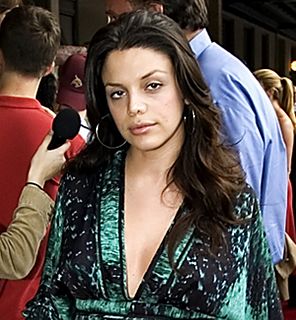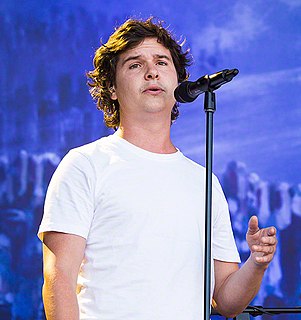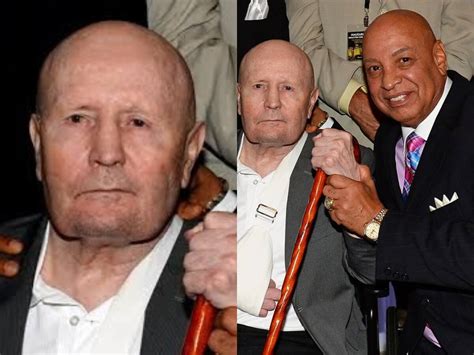A Quote by Craig Venter
You can't just live in a comfortable little suburban neighborhood and get your education from movies and television and have any perspective on life.
Quote Topics
Related Quotes
When you live in a poor neighborhood, you are living in an area where you have poor schools. When you have poor schools, you have poor teachers. When you have poor teachers, you get a poor education. When you get a poor education, you can only work in a poor-paying job. And that poor-paying job enables you to live again in a poor neighborhood. So, it's a very vicious cycle.
You don't have to get a job that makes others feel comfortable about what they perceive as your success. You don't have to explain what your plan to do with your life. You don't have to justify your education by demonstrating its financial rewards. You don't have to maintain an impeccable credit score. Anyone who expects you to do any of those things has no sense of history of economics or science or the arts.
Sometimes when you're relegated to your neighborhood, you forget that there's more important things than your neighborhood going on out in the world. And that just gave me a chance to see how life could be. And it gave me a chance to interact with everybody, not just black people or Mexicans. It made me just a little more worldly.
I know it's good when I see a smaller film get recognized because it means more publicity for them. Any way to get the word out, I'm just learning about this. The end of this distribution sentence is the scariest part, which is when you start producing and directing. Now the movies are a little more like your children. You now spent years of your life and then it just dumps in one day and you think what happened? It doesn't always happen.
Dad has worked as a banker at the same firm in Boston, living in the same suburban neighborhood for over 50 years. Later in life, when I got out of graduate school and imagined myself living the life of a writer like Hemingway or Kerouac, his practical self inevitably encouraged me to get a steady a job and raise a family, just like he did.
Television is interesting, in that the pace is quicker and you can see your work more quickly than with movies. And then, with the added social media aspect, you can access that relationship to the fans directly and you have control of the content of what you say, your perspective, your opinions and your ideas.
It was the economic benefit,You make a comfortable living in public service and you get a fairly comfortable retirement, if you watch your pennies and you're not extravagant. But in television, if a show goes, you make a substantial amount of money. So, economically it just didn't make sense for me not to.





































